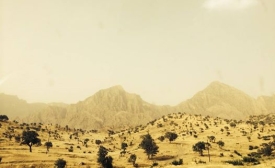iraq
Dozens of young Australians are showing their support for fighters in Syria and Iraq by liking images, creating online groups and adopting the black-and-white flag used by a terrorist group on their social media pages.
A video purporting to show British jihadists urging Western Muslims to join them in Iraq has been released on social media. The footage - which has not been independently verified - apparently features Britons and Australians fighting for the Islamic State in Iraq and Syria (ISIS).

As Al Qaeda-inspired ISIS continues its violent march towards Baghdad, the group's social media outreach is being closely examined.
US President Barack Obama ordered American troops back onto Iraqi soil. Granted, it's only a few hundred this time, and they are ostensibly there just to protect the US embassy in Baghdad — a far cry from the thousands that flooded the country after the 2003 invasion. Still, US troops in Iraq carry the baggage of that long, bloody war, a fact that is not lost on the average Iraqi.
It's a truth of warfare in the digital era: Bullets and bombs often are augmented by status updates and tweets. The bloody conflict taking place in Iraq is no different.
Once the Iraqi situation calms down, Kurdish leaders should embark on a public diplomacy campaign that stresses Kurdistan’s political and economic stability and its value as a partner to the West in sorting out the regional mess.
The advance of an army used to be marked by war drums. Now it’s marked by volleys of tweets. The Islamic State of Iraq and Syria (ISIS), the Sunni militant group that seizedIraq’s second-largest city last week and is now pledging to take Baghdad, has honed this new technique—most recently posting photos on Twitter of an alleged mass killing of Iraqi soldiers.

The rarity and significance of Kurdistan’s stability are underscored by events of this week.







